
Do you have what you need to make your garden grow?


Garden Center
Store Hours
Mon-Sat:
6:00am - 10:00pm
Sun:
8:00am - 8:00pm
Curbside:
09:00am - 6:00pm
Location
Popular at Your Garden Center
Trending Garden Supplies in May
Trending Live Plants
Garden Project Calculators
;Resize=(703,395.44))
Grass Seed Calculator
When you're ready to seed your lawn, our calculator helps you estimate the amount of grass seed you'll need to get the job done.
;Resize=(703,395.44))
Mulch Calculator
Enter your preferred material, the square footage and mulch depth of the coverage space for accurate results.
;Resize=(703,395.44))
Fencing Calculator
We'll calculate the amount of fencing you should purchase based on your property needs.
Shop Outdoor and Garden Brands
Frequently Asked Questions About Gardening
How do I know what planting zone I'm in?
Check the USDA growing zone map, as planting zones have shifted over the years. Zones with higher numbers can plant earlier in the year. Choose plants that are meant for your zone and increase your odds of successful gardening.
What's direct sow?
If the soil is warm and pliable, consider planting your veggie, flower, or fruit seeds directly into your garden. This is called the "direct sow" method. Plant after the threat of frost is gone for the season, as seedlings and sprouts can't weather those conditions. You can also start your seeds indoors if you'd like. Consult your seed envelope for when and how to sow seeds.
Do you carry organic plants and seeds?
Yes, we've got a variety of organic options, including organic fruit seeds and veggie seeds, as well as organic herb and flower seeds that are subject to availability. We also carry the organic fertilizer to feed your plants and the organic soil to plant them in.
Should I harden off my seedlings before planting them outside?
Yes, for best results, if you raised plants indoors from seeds in your own plant nursery, harden them before you transplant them. Hardening is the process of getting them used to the great outdoors and sun, rain, and temperature swings. It slows their growth until they're strong and ready to take off during a spring warm front. Hardening also makes your plants more resilient to a sudden cold snap. Read your seed packets or speak to a garden center associate for more info on caring for your seedlings.
How do I plant a transplant or baby plant?
Squeeze the plastic around the plant to loosen the soil. Gently coax your transplant and the surrounding clod of dirt out into the palm of your hand, then place it into the hole you dug for it. Make sure the top of your transplant's soil is even with the garden soil, and carefully press the earth into place. Avoid mounding a volcano of dirt around your plant, and don't pack the ground too tightly. Your plant baby needs to breathe.
What are seed tapes?
If you want more guidance in planting or are dealing with extremely tiny seeds, consider seed tapes. They're biodegradable pieces of paper with tiny seeds affixed at regular intervals. Just bury the tape and water as directed. If all goes well, you'll have perfectly spaced sprouts pop up soon.
Garden Project Ideas
The Home Depot Garden Center at Clermont
Set Up For Springtime
It's time to start thinking of spring. Sweep out the gazebo and clean the shed to prepare for fragrant breezes, warmer temperatures, and sprouts poking up out of the ground. Planting seeds indoors with grow lights means you'll be ready to transplant spring annuals and young veggie plants when the ground thaws and the frosts are through. You might even want to sow seeds directly into the earth. What better way to start than by exploring your favorite local plant nursery, The Home Depot Garden Center in Clermont?
Plant Hardiness Zones Explained
The first thing to know when planting spring flowers, veggies, and other seeds is your planting zone. Every location in the U.S. and its territories is sorted into blocks by climate. Find your zone on the USDA growing zone map and learn when to plant seeds.
For example, you could transplant bell peppers outdoors in mid-March in Zone 10, but not until the end of May in Zone 4. The plants that'll thrive in your area are in your zone — plus all the zones numbered less than that. In other words, a Zone 7 garden can support plants listed as Zones 1–7. The timeframe to direct sow outdoors in your garden is often around a month later than the indoor start date. Be sure to read your seed packet for details. If you start them later than recommended, it's not ideal, but it will even out as time passes.
Gardening in Your Growing Zone
In the areas of Zones 9 and 10 stretching across the Southeast, you can begin planning and planting indoors early in the year. Your odds of frost are low in this part of the country, but not zero. Be mindful of cold snaps and cover any sprouts or early-riser bulb plants during cold times.
Growing season begins early and ends late in this part of the country. A wide variety of veggies, flowers, and plants thrive in Florida and southern Georgia. If you've got good soil drainage, you can even grow citrus trees. You'll have excellent results with peppers of all colors and heat levels, including jalapeños, bell peppers, and more. Zucchini, cucumbers, squash, and pumpkins, which are direct sow only, will flourish. Tomato plants will yield thriving fruit and leaves, as they're tropical in origin and are happiest in the heat.
Plant Seeds Outside With Direct Sow
Planting seeds into your garden soil, or using the direct sow method, is an alternative option. There's less tending and planning than growing indoors. If you like to go with the flow, follow the instructions on your seed pouch and try it.
Your seeds might struggle to grow or get washed away, or critters or insects might eat the sprouts. But if you're really lucky, you might get a strong sprout from each place you sowed seeds, perfectly spaced and ready to grow all spring. The reality of your sown seeds will usually be somewhere in between, and spreading out tiny sprouts throughout the soil isn't so bad. You know those sprouts are primed to survive, although there are no guarantees.
Start Seeds Indoors
If you're eager to get growing or would like more control in the care and feeding of seedlings, start your seeds indoors in your own plant nursery. In general, you can plant seeds indoors about a month before you can do it outside. Like direct sow, you push the seeds into the soil as directed on the seed packet, but that's where the similarities end.
You're responsible for giving them quality substitutes for rain and sun. Keep your seeds warm with warming mats and grow lights, water them carefully with a spray bottle or watering can, then thin them as they germinate in groups of three. Give them a boost with a gently blowing fan as they lengthen into sprouts if you'd like. Harden them off to get them used to outdoor conditions, then transplant them into your garden when they're big enough.
Transplant Young Plants Into Their New Homes
Carefully take your seedling out of the container. Turn it sideways or upside-down and gently squeeze the plastic to break the seal. If your transplant grew in the garden, dig deeper than you think with your garden trowel and leave plenty of room around the stem. You don't want to damage the root ball. Put the plant in the new hole and ensure it's even with the surrounding soil.
Protect Your Garden With Mulch
Finish it all off with mulch and compost. Compost enriches the soil so your garden can grow even better. It may help foster stronger and larger plants that bear more fruit and flowers. Mulch controls weeds and keeps your soil from drying out. Compost and mulch can be DIY creations, but you can also purchase them in-store. The next time you're looking for "mulch near me," stop by the Garden Center to get the right amount.
Greet the Spring
Don't miss a minute of growing season. Plan your garden and landscaping, prepare to fertilize your lawn, and browse The Home Depot nursery to find inspiration on what to plant when the weather warms. For those without lawns, consider adding artificial grass, an outdoor rug, or a pellet grill to your patio or balcony. Shop for the fertilizer, soil, and seeds you need in the aisles of your Clermont Garden Center, online, or on our mobile app. Let's get growing together.
Nearby Stores
Find Another Store
1670 W Orange Blossom Trail
Apopka, FL 32712
14.73 mi
Mon-Sat: 6:00am - 10:00pm
Sun: 8:00am - 8:00pm
7022 W Colonial Dr
Orlando, FL 32818
15.14 mi
Mon-Sat: 6:00am - 10:00pm
Sun: 8:00am - 8:00pm
4403 Millenia Plz Way
Orlando, FL 32839
18.52 mi
Mon-Sat: 6:00am - 10:00pm
Sun: 8:00am - 8:00pm

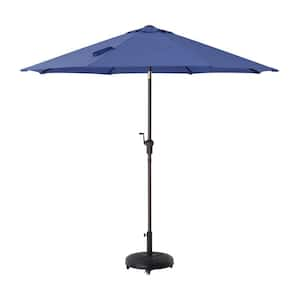
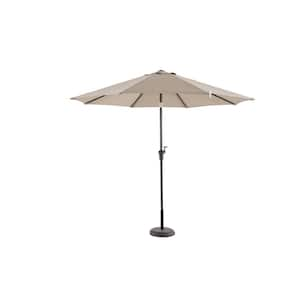
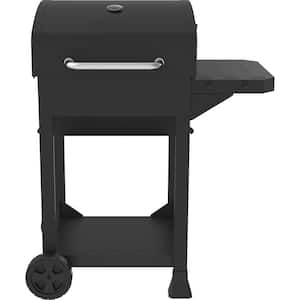
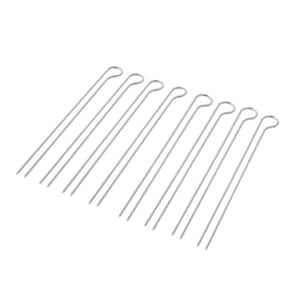
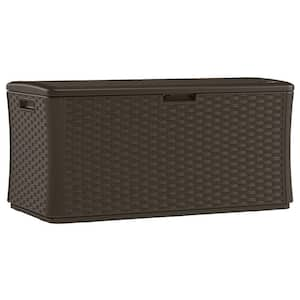
)
)
/17_514245_S_012_Product%20Image%20(square).jpg?im=Resize=(300,300))
;Resize=(300,300))
)
)
)
)
)
/2023_P2_Rain_Barrels_Product%20Image%20(square).jpg?im=Resize=(300,300))
)
;Resize=(300,300))
;Resize=(300,300))
;Resize=(300,300))
/12_SOIL_B_0420_Social%20media%20(square).jpg?im=Resize=(300,300))
;Resize=(300,300))
)
)
;Resize=(300,300))
;Resize=(300,300))
;Resize=(300,300))
;Resize=(300,300))
)
)
;Resize=(300,300))
;Resize=(300,300))
;Resize=(300,300))
;Resize=(300,300))
;Resize=(300,300))
)
/18Patio_Camden_Seagrass_5pcSeating_Planters_302468736_DTL3_L_Social%20media%20(square).jpg?im=Resize=(300,300))
;Resize=(300,300))
;Resize=(300,300))
;Resize=(300,300))
)
;Resize=(300,300))
;Resize=(300,300))
)
;Resize=(300,300))
)
.jpeg?im=Crop,rect=(363.69230769230774,1.2307692307692308,958.7692307692308,958.7692307692308);Resize=(300,300))
;Resize=(300,300))
)
;Resize=(300,300))
;Resize=(300,300))
)
;Resize=(300,300))
)
)
;Resize=(300,300))
;Resize=(300,300))
)
)
;Resize=(300,300))
)
;Resize=(300,300))
;Resize=(300,300))
)
)
;Resize=(300,300))
)
)
/Capello_Spring_Mum_10in_Social%20media%20(square).jpg?im=Resize=(300,300))
;Resize=(300,300))
)
)
;Resize=(300,300))
)
)
;Resize=(300,300))
)
)
;Resize=(300,300))
;Resize=(300,300))











































